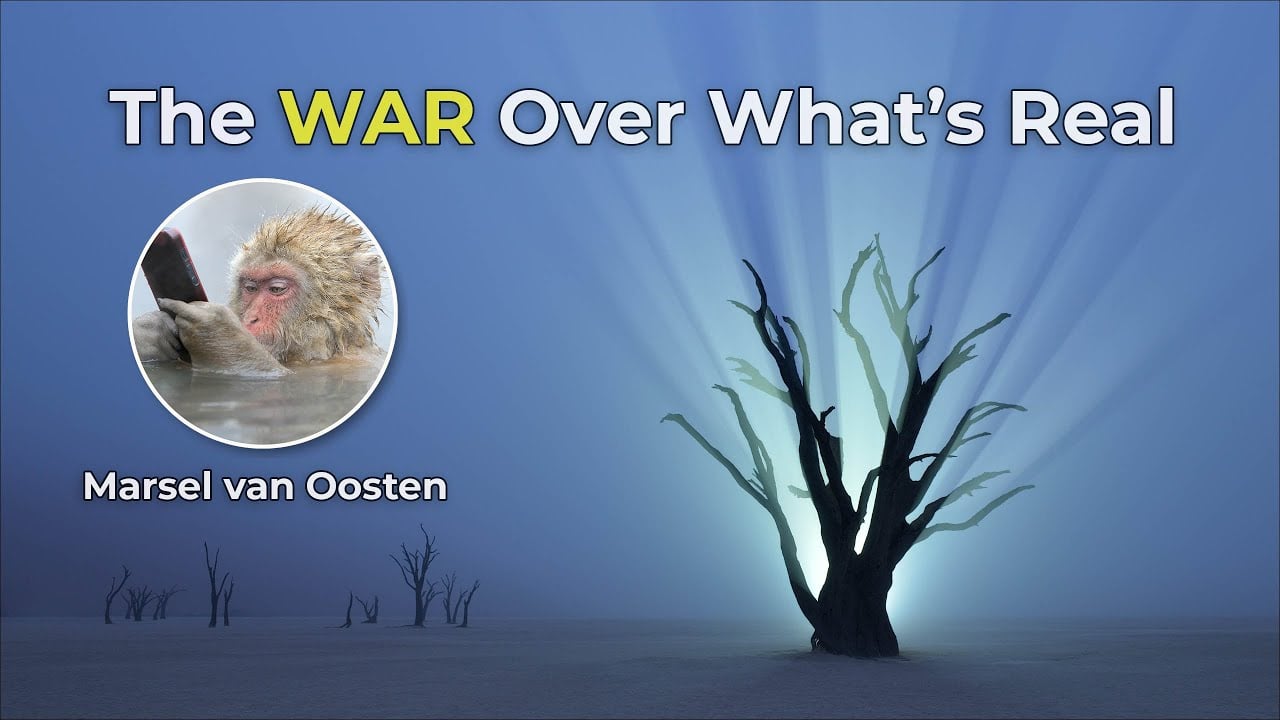
In Episode 403 of the podcast “F-Stop Collaborate and Listen,” I had the privilege of speaking with Marsel van Oosten, an award-winning photographer celebrated for his breathtaking wildlife and landscape images. Our conversation spanned a plethora of subjects, from ethical dilemmas in photography to the disruptive influence of artificial intelligence. In this blog post, I want to expand on some of the key topics we delved into, offering a comprehensive look at Marsel’s perspectives and how they resonate in the broader context of art and technology.
The thin line between editing and manipulation
One of the primary points Marsel and I discussed was the contentious issue of image manipulation. Marsel has a measured stance on this topic. He believes that while some level of editing is acceptable—such as removing small distractions—total manipulation of an image crosses a line. The core of his argument is that overly manipulated photographs can be misleading.
For Marsel, there is a crucial distinction between enhancing a scene to better convey what was genuinely there and fabricating elements that weren’t. I couldn’t agree more. In my own work, I strive to use minor retouches to bring out the essence of the scene without veering into the territory of creating something wholly new. This philosophy ensures authenticity, a value that both of us uphold dearly.

A different standard for video editing
Marsel also brought up a point that is often overlooked—the different standards applied to video editing compared to photography. Particularly in wildlife documentaries, where sequences might be edited to suggest interactions that never actually occurred. This practice can be insidious because documentaries are typically perceived as factual.
By juxtaposing clips, editors can craft a narrative that skews the reality of animal behaviors and interactions. This is not merely a technical issue; it’s ethical. When we present altered footage as truth, we mislead our audiences. This same principle can extend to news and political ads, where spliced clips craft false narratives that can have significant real-world consequences.
High standards and fuzzy boundaries in art
The broader context of media manipulation brings us to another important observation: The standards we apply to certain types of art and media should be higher due to their perceived factual nature. While art and storytelling will always involve subjective choices and interpretations, there’s a pressing need for greater scrutiny in documentaries and news.

The role of artificial intelligence
One of the most thought-provoking parts of our conversation centered around the impact of artificial intelligence on photography. AI is moving at a pace that is both fascinating and alarming. Soon, AI-generated images will be indistinguishable from real photographs, flooding social media and changing the landscape for professionals.
Traditional photographers face the challenge of competing against a deluge of AI-generated content that can be crafted without the unpredictability and environmental challenges that come with capturing real moments. However, there’s an irreplaceable value in the actual experience of witnessing and capturing those moments, an experience that AI cannot replicate.
Marsel’s personal take is that while AI will open opportunities for people who prefer creating art without experiencing the rigors of traditional photography, there’s still a compelling market for those who value the authentic experience. Our workshops, focusing on unique travel experiences, stand as a testament to this enduring appeal.

The art of storytelling and artistic freedom
Throughout our discussion, Marsel emphasized a notion that struck a chord with me: in art, there are no rules unless self-imposed by the artist. This freedom is crucial for creativity. Marsel shared how his background in graphic design and advertising shaped his approach to photography, offering an edge in both composition and digital editing.
While Marsel and I appreciate the finer balance between inspiration and imitation, we acknowledge that the boundaries are often blurred. The fine line between being inspired by others and outright copying is a historical and ongoing issue, now exacerbated by AI.
Personal ethics in photography
An intriguing part of our conversation was Marsel’s insistence on adhering to personal guidelines while allowing full artistic freedom. Despite believing that art should be devoid of restrictions, Marsel prefers to present his own photography in a natural, realistic manner. This personal ethos ensures that his work remains authentic and reflective of genuine moments.

The ongoing debate: truth in photography
Every photographer inevitably grapples with the question of truth in their work. Marsel and I discussed the intense scrutiny placed on wildlife photographers for authenticity, contrasting it with other genres where manipulation is more accepted. Photography, by its very nature, involves choices—framing, focus, and timing—all of which can subtly alter the perceived reality. The challenge lies in navigating these choices ethically.
Connecting through art: human vs. AI
The final point of contention was about human connection in art. Marsel and I debated the role of human connection in appreciating art, concluding that while AI can generate technically flawless images, the human soul behind a photograph adds a layer of depth that is irreplaceable. However, this doesn’t mean that AI lacks value; it can still entertain and evoke emotions.

Conclusion
Our conversation with Marsel van Oosten left me pondering the evolving dynamics of art and technology. As photographers, we must navigate these shifts while staying true to our personal and ethical standards. Authenticity, creativity, and the irreplaceable human experience remain our guiding stars in a complex, ever-changing landscape.



















